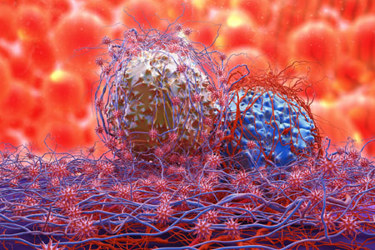A Focus On Cell Therapy: CAR-T, CAR-NK, And Beyond
By Tae Whan Kim, GC Cell

Cell therapy, particularly Chimeric Antigen Receptor (CAR)-T cell therapy, has become a revolutionary force in cancer treatment. CAR-T therapies involve genetically modifying a patient's own T cells to recognize and attack cancer cells. This approach offers a highly personalized and targeted treatment option. So far, CAR-T therapies have achieved significant success in treating hematological cancers like B-cell lymphomas and multiple myeloma.
However, current CAR-T therapies have limitations. Their effectiveness has been limited to blood cancers, with only modest success against solid tumors. Researchers are actively working to improve their efficacy and safety. This includes developing multi-specific CARs that can target multiple cancer antigens simultaneously, while also minimizing side effects to avoid the need for additional treatments.
The future of cell therapy extends beyond CAR-T cells. Researchers are exploring the use of other immune system cells like natural killer (NK) cells, macrophages, and tumor-infiltrating lymphocytes (TILs) for cancer treatment. Each cell type offers unique advantages for different types of cancer. For instance, CAR-macrophages (CAR-Ms) can infiltrate solid tumors more effectively, making them potentially more suitable for these cancers compared to CAR-T cells.
As CAR-T cell therapy continues to evolve, it promises to become even more precise in targeting cancer cells while overcoming production challenges. To fully unlock this potential, researchers need a two-pronged approach: in-depth evaluation of safety and efficacy, alongside the development of next-generation CARs with novel properties to tackle a wider range of cancers.
Get unlimited access to:
Enter your credentials below to log in. Not yet a member of Cell & Gene? Subscribe today.
